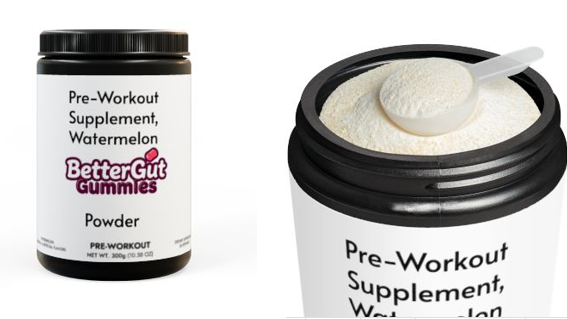Unlocking Performance: The Health Benefits of Essential Nutrients for Exercisers
4/15/20255 min read


Understanding Essential Nutrients
Essential nutrients are substances that the body cannot produce on its own or in sufficient quantities, making it necessary to obtain them from dietary sources. These nutrients play a critical role in maintaining overall health, supporting various bodily functions, and enhancing athletic performance, particularly for individuals engaged in regular exercise. Essential nutrients are broadly categorized into macronutrients and micronutrients, each with unique functions that contribute to fitness and well-being.
Macronutrients include carbohydrates, proteins, and fats, and they are required by the body in larger amounts. Carbohydrates serve as the primary energy source, especially during high-intensity workouts. They are broken down into glucose, which fuels muscles and sustains performance. Proteins, essential for muscle repair and growth, provide the necessary amino acids required to build and maintain lean body mass. Fats, while often overlooked, are vital for long-duration activities, supplying energy and aiding in the absorption of fat-soluble vitamins.
On the other hand, micronutrients encompass vitamins and minerals, which are needed in smaller quantities yet are integral to various metabolic processes. Vitamins, such as B-complex vitamins, play a key role in energy production, while others like vitamin C are crucial for immune function and recovery post-exercise. Minerals, including calcium and magnesium, are essential for muscle contraction and overall bone health, making them particularly important for exercisers to prevent injuries and ensure optimal performance.
The balance of these essential nutrients is vital for anyone looking to enhance their fitness levels. By ensuring an adequate intake of macronutrients and micronutrients, individuals can support their body’s demands during physical activity, aiding not only in performance but also in recovery and long-term health. Understanding the importance of these nutrients lays the groundwork for optimizing nutritional strategies tailored to exercise regimes.
The Impact of Nutrition on Physical Performance
Nutrition plays a critical role in enhancing physical performance, particularly for those engaging in regular exercise. Essential nutrients, comprising macronutrients and micronutrients, contribute significantly to an athlete's ability to perform at their best. Macronutrients such as carbohydrates, proteins, and fats provide the necessary energy to fuel workouts, support recovery, and facilitate muscle growth and repair. Carbohydrates serve as the primary energy source, particularly during high-intensity exercise; they are converted into glucose, which is utilized by the muscles. Adequate carbohydrate intake is thus vital for maintaining performance levels and preventing fatigue.
Proteins are equally important for individuals engaging in strength training or endurance sports. They are composed of amino acids, which play a fundamental role in muscle repair and growth. Consuming sufficient protein post-exercise is essential for recovery, allowing the body to rebuild muscle tissues that have been stressed during physical activity. Fats, although often overlooked, are essential for long-duration exercises, serving as a dense energy source and contributing to overall endurance.
Beyond macronutrients, micronutrients—such as vitamins and minerals—are crucial for optimal physical performance. They support various physiological functions including energy metabolism, muscle contraction, and immune system health. For instance, magnesium is vital for muscle contraction and energy production, while vitamins A, C, and E serve as antioxidants that protect cells from oxidative stress, enhancing recovery and performance. A deficiency in key micronutrients can impair exercise capacity and recovery times, highlighting the importance of a well-balanced diet to meet the demands of an active lifestyle.
As such, adopting a well-rounded nutritional strategy is essential for athletes and fitness enthusiasts alike, as it not only supports performance but also aids in achieving long-term exercise goals. Prioritizing essential nutrients ensures that individuals can sustain their energy levels, optimize recovery, and enhance overall athletic performance, thereby unlocking their potential in their respective sports.
Recovery and Essential Nutrients: A Key to Longevity in Fitness
Recovery is a fundamental aspect of any fitness routine, serving as the bridge between the exertion of exercise and the body's ability to restore itself. Essential nutrients, including carbohydrates, proteins, fats, vitamins, and minerals, play a critical role in the recovery process. These nutrients are crucial for tissue repair, muscle recovery, and the replenishment of energy stores that are depleted during exercise.
Post-exercise, the body undergoes a series of complex physiological processes that necessitate adequate nutrient intake. For instance, protein is essential for muscle repair and growth, as it provides the amino acids required to rebuild damaged muscle fibers. Similarly, carbohydrates are vital for replenishing glycogen stores, which are the primary energy source during high-intensity workouts. Consuming a balanced mix of these macronutrients shortly after completing a workout can significantly enhance recovery. Research suggests that the optimal window for post-exercise nutrient intake lies within the first 30 minutes to two hours after exercise.
In addition to macronutrients, micronutrients, such as vitamins C and E, and minerals like zinc and magnesium, contribute to the recovery process by reducing inflammation and oxidative stress. This is important as intense workouts can lead to temporary increases in inflammation, which, if unaddressed, may hinder performance and recovery. Incorporating a variety of fruits, vegetables, nuts, and seeds into your meal planning is an effective way to ensure adequate micronutrient intake.
Meal planning focused on recovery is integral for exercisers committed to maintaining their fitness level. Simple strategies include preparing nutrient-dense snacks, such as Greek yogurt with berries, or whole grain toast topped with avocado and eggs, to ensure that essential nutrients are readily available after workouts. By prioritizing these nutrient components, individuals can significantly optimize their recovery, allowing them to sustain their exercise routines over the long term.
Practical Tips for Incorporating Essential Nutrients into Your Routine
Incorporating essential nutrients into a daily diet is crucial for those engaged in regular exercise, as it directly supports performance and recovery. A well-rounded approach involving nutrient-dense foods can significantly enhance your health and fitness outcomes. To begin with, prioritize whole foods such as fruits, vegetables, lean proteins, whole grains, and healthy fats. These foods not only provide essential vitamins and minerals but also foster energy levels and muscle repair.
Meal prep can be an effective strategy for ensuring the inclusion of essential nutrients in your diet. Consider planning your meals at the beginning of each week to simplify choices during busy days. For instance, you might batch-cook quinoa or brown rice as a base for various dishes, integrate a variety of seasonal vegetables, and prepare lean proteins, such as grilled chicken or lentils, to complement your meals. By keeping healthy snacks, such as nuts, yogurt, or sliced veggies on hand, you can easily avoid unhealthy choices that may disrupt your nutrient intake.
While whole foods should be the cornerstone of your nutrition, supplements may be beneficial in certain situations. If you find it challenging to meet your nutrient needs through food alone—especially with intense training or dietary restrictions—consulting a healthcare professional or a registered dietitian can provide personalized advice. Adequate hydration is also a vital component; thus, ensure you are drinking enough water throughout the day, particularly before, during, and after your workouts.
Finally, remember to tailor your nutrient intake based on your workout intensity and personal fitness goals. For example, athletes engaging in high-intensity training may require increased protein and carbohydrates to fuel their sessions and facilitate recovery. By considering individual needs and preferences, you can create a sustainable nutrition plan that optimally supports your exercise regimen and overall health.
